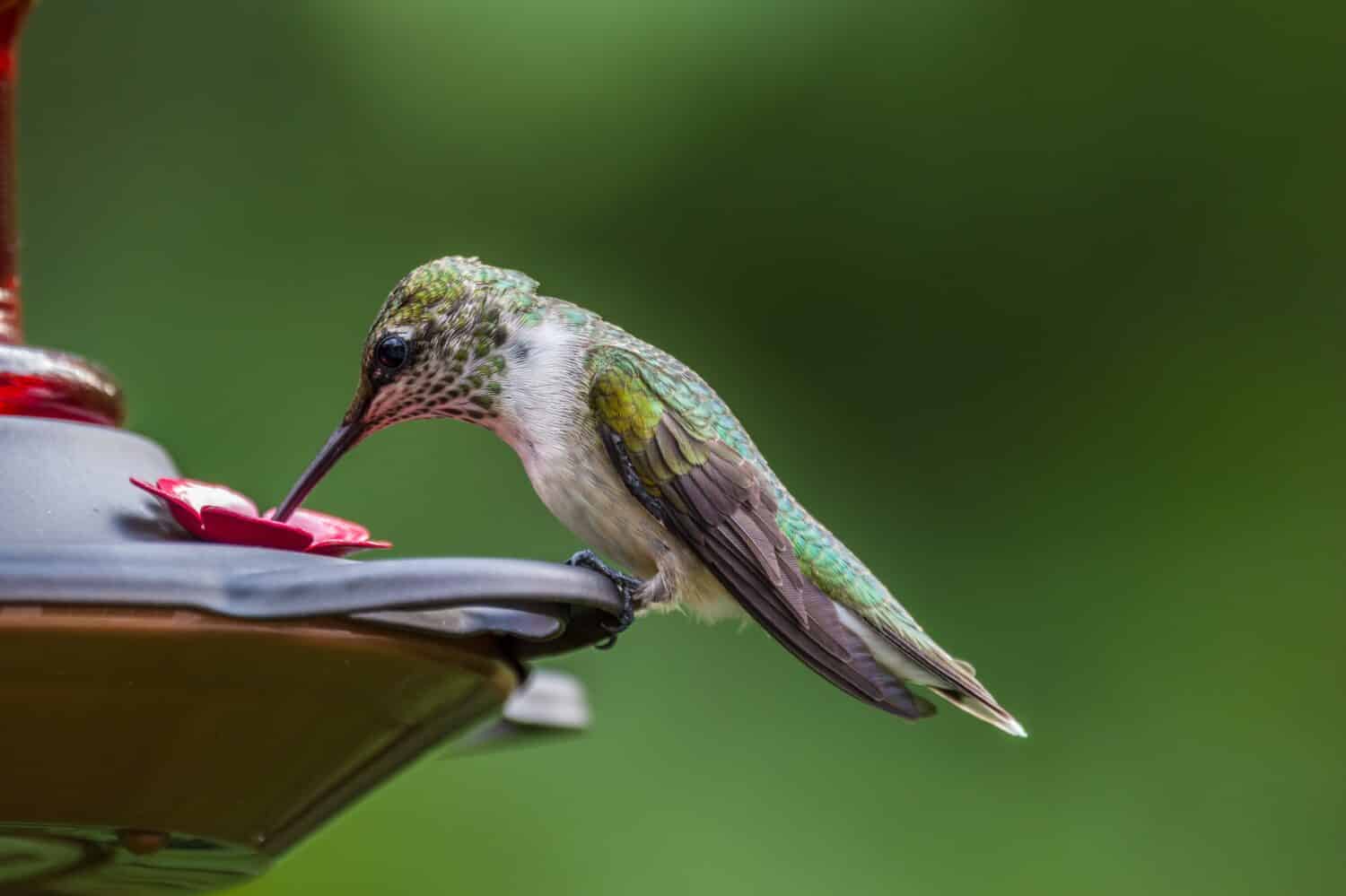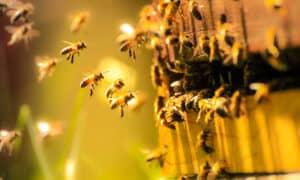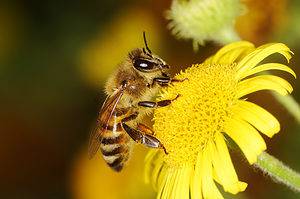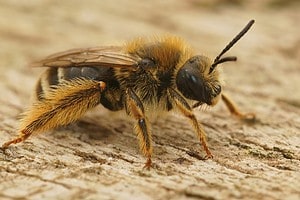While both hummingbirds and bees are valuable backyard companions to keep around, they don’t always get along. Your hummingbird feeder may see a lot of action- but not from the animal you think. Bees love the sugar water and nectar commonly used for hummingbird feeders. But their presence may keep timid hummingbirds away!
How can you keep bees away from your hummingbird feeder without harming this delicate pollinator population? Here are seven things to try so that you can keep the peace in your backyard!
1. Use a Different Feeder
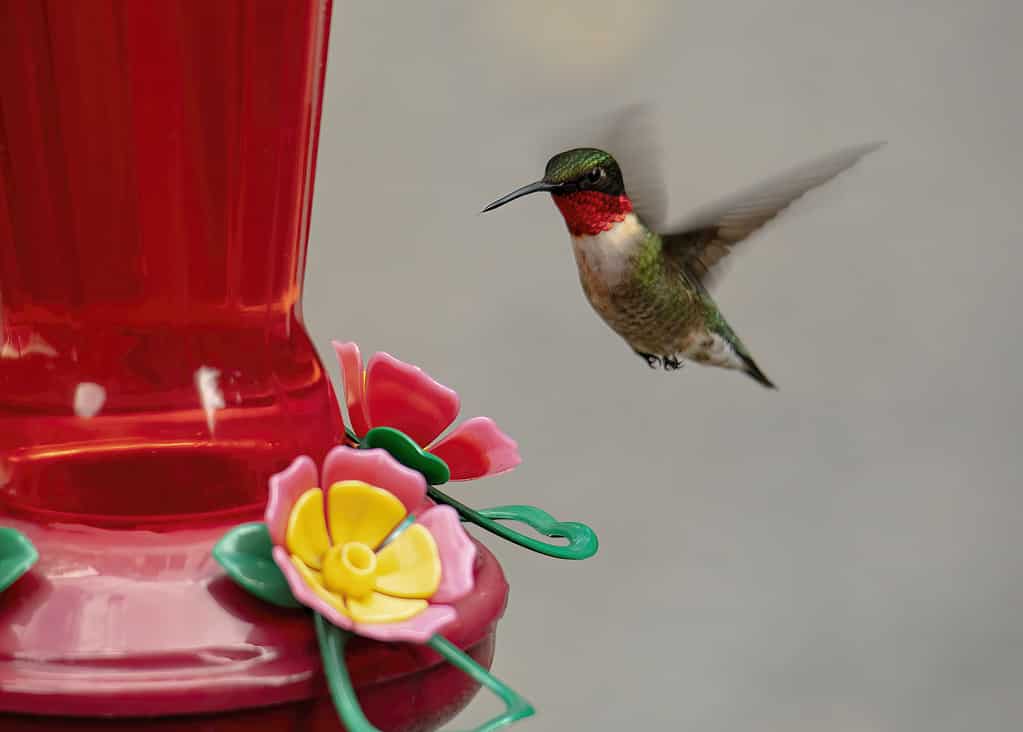
©CharlieFloyd/iStock via Getty Images
The design of your hummingbird feeder may be ideal for hummingbirds- but some designs are also ideal for bees. If your hummingbird feeder is yellow in color, boasts an inverted design, or doesn’t have bee guards, it may be too easy for bees to access.
All of these things can affect how and why bees might access your hummingbird feeder. If the nectar proves too easy to get at, bees will keep returning. By purchasing a feeder in a color other than yellow and otherwise designed with bee prevention in mind, you’ll likely have to put up with these pollinators a lot less!
2. Make Sure Your Feeder is Regularly Cleaned
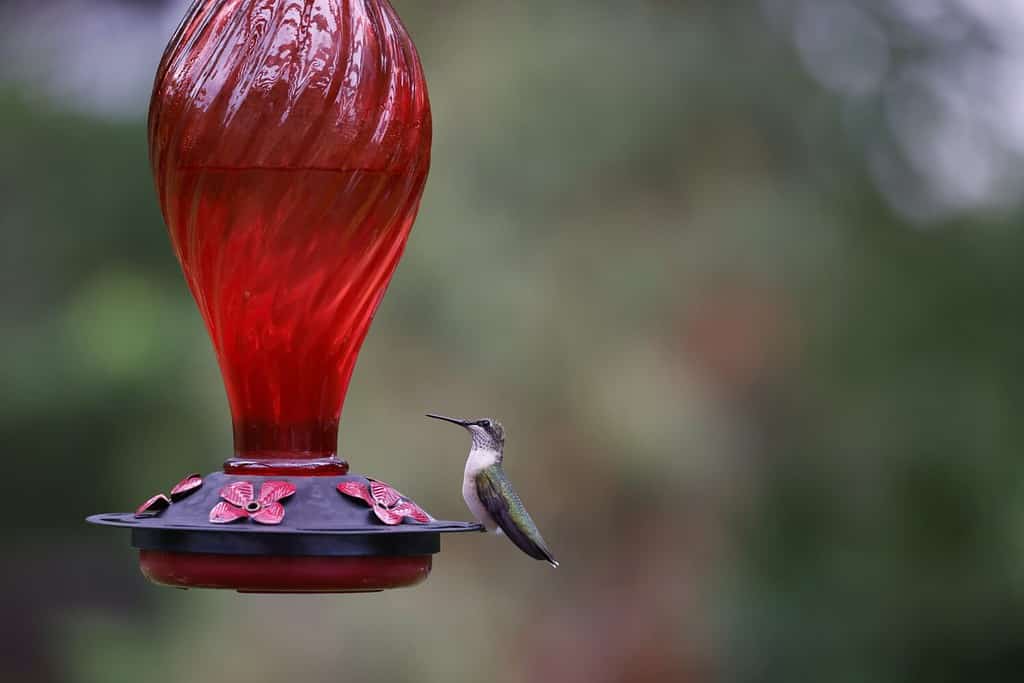
©Randall Vermillion/Shutterstock.com
A dirty hummingbird feeder will keep hummingbirds away and it’s more likely to attract bees to it. This is the exact opposite of what you want when installing any hummingbird feeder! It’s extremely important to keep your feeder clean to both prevent bees as well as ensure the health of any hummingbirds that choose to feed there.
It’s recommended to clean your hummingbird feeder once every other week or anytime you add more food to it. The sugars that hummingbirds are attracted to easily crust and form harmful bacteria, especially on hot days. Maintaining your feeder is a must!
3. Pick a Shady Spot
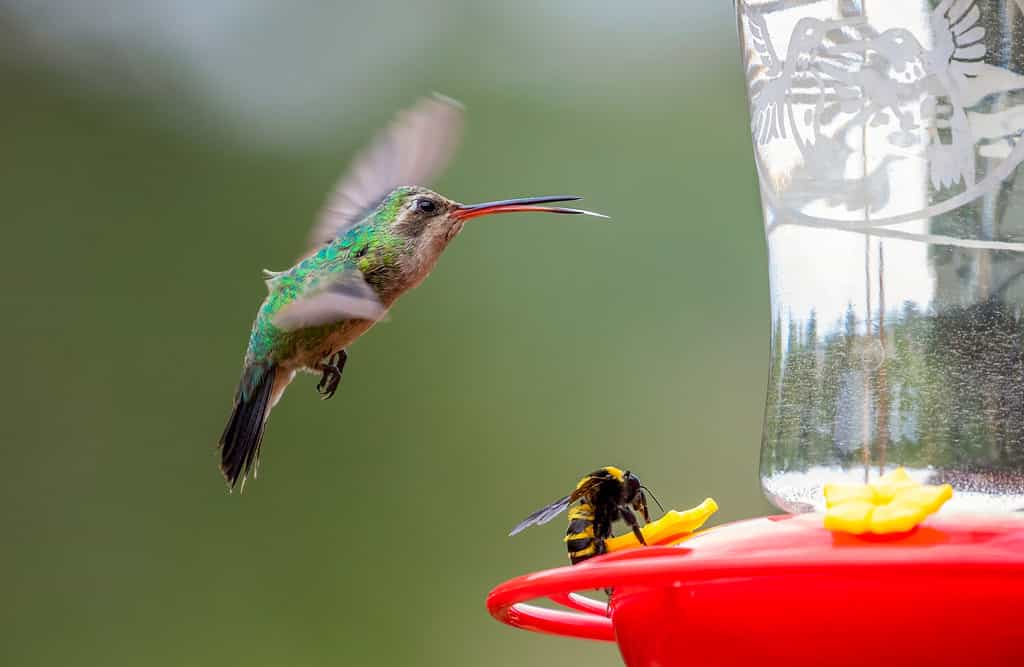
©Danita Delimont/Shutterstock.com
Bees utilize bright colors and light to find their sustenance and pollinator sources. These buzzing bugs are less likely to pursue a hummingbird feeder that’s displayed in a shady location. The same can be said for hummingbird feeders installed away from blooming flowers. Any location away from where bees tend to gather is a good spot to put your hummingbird food.
By opting for the shade of a tree or shrub, your hummingbird feeder will still be visible to hummingbirds but less noticed by bees. There are likely plenty of plants and flowers away from the shade for bees to enjoy!
4. Plant More Flowers

©nnorozoff/iStock via Getty Images
If you don’t have other pollinator plants or flowers in your yard for bees, you may want to consider planting some. By providing a buffet of blooms to your local bee population, you’re basically ensuring they stay fed and happy enough to leave your hummingbird feeder alone.
While it will depend on your Hardiness Zone and local climate, there are plenty of flowers that appeal to bees. Plant native blooms when possible, as these will thrive in your area and provide bees with adequate nutrition (and your hummingbirds can eat in peace too).
5. Gently Deter Bees With All-Natural Solutions
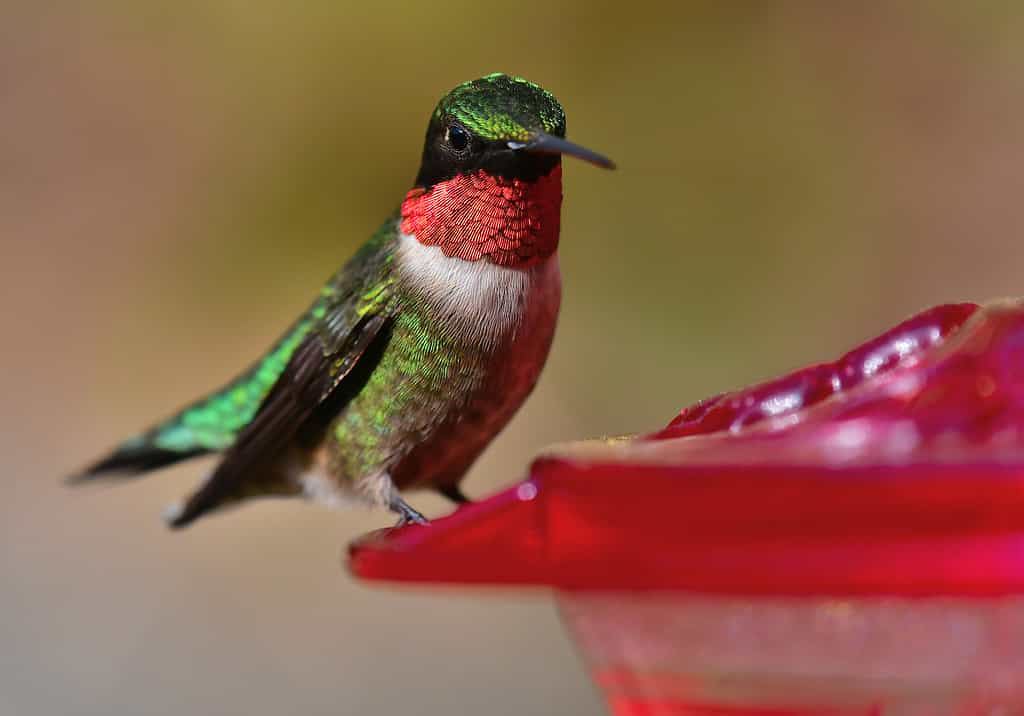
©Robert Winkler/iStock via Getty Images
First thing’s first: please do try not to kill the bees that visit your hummingbird feeder. While annoying and capable of keeping your hummingbirds away, bees are invaluable pollinators and creatures in need of protection. Only use certain essential oils or scents to deter these gentle insects from your feeder, and only if necessary.
Some smells will repel bees without harming them, and most of these smells are smells hummingbirds ignore. Dilute essential oils like eucalyptus and peppermint and spray the area around your feeder. Or utilize vinegar and citrus to accomplish the same task. Just be sure to avoid spraying the feeder directly and always reapply after it rains!
6. Ensure Your Hummingbird Feeder Isn’t Damaged
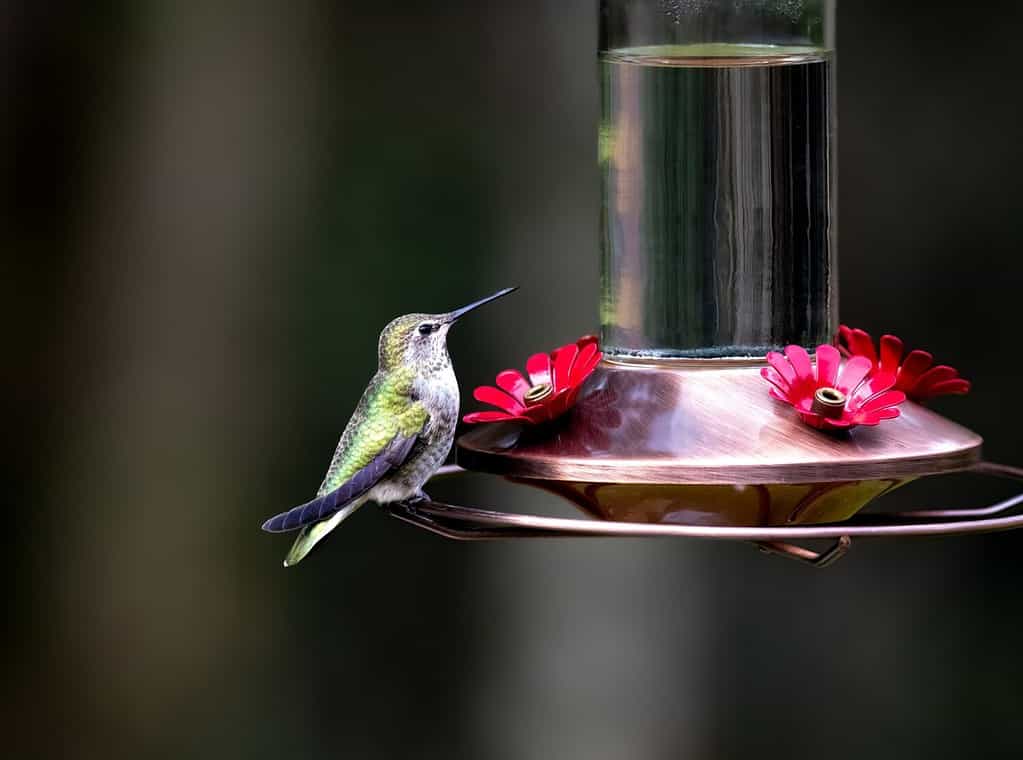
©Jeff Westhead/Shutterstock.com
If bees or wasps are swarming your hummingbird feeder, you may want to make sure it isn’t leaking. If your feeder is damaged or cracked, it may not be feeding your hummingbirds at all. However, the sugar water escaping from it will definitely draw bees to it without fail.
Check your feeder for any signs of damage. Tighten any valves, ports, or loose components. By taking care of your feeder and maintaining it, you may discourage bees from it faster than you think.
7. Give the Bees What They Want
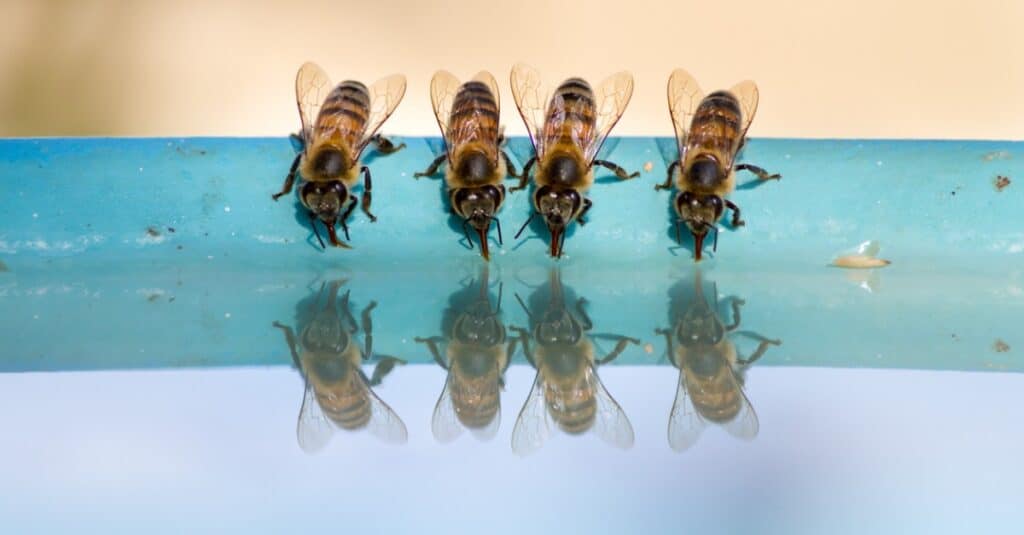
©iStock.com/EcaterinaLeonte
While you may not want bees feeding from your hummingbird feeder, this doesn’t mean you can’t give them their own sugar water or nectar. If the bees in your backyard persist, set up a feeding station for them in an area far away from your hummingbird food.
Use a brightly colored tray or dish and fill it with sugar water or nectar. Ensure that there are places for the bees to perch in order to feed. If you surround this food with flowers and other things that attract bees, you may find it simple to get them to eat elsewhere. This ensures your hummingbird feeder remains a happy place for hummingbirds and hummingbirds only!
Thank you for reading! Have some feedback for us? Contact the AZ Animals editorial team.

